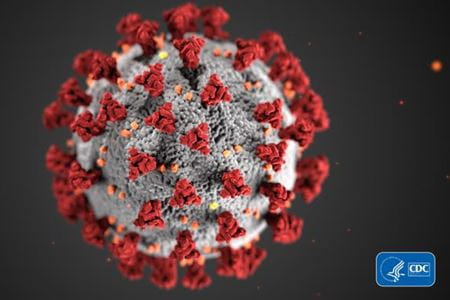Do all physicians and scientists not on the “front lines” of this pandemic feel this or is it unique to women? Women in medicine and science have long struggled with the sense of never having “done enough” and have pushed themselves even harder to get the same recognition accorded our male colleagues. Does that make us more vulnerable to guilt, or are we holding ourselves to unreasonable expectations? We arranged to meet for a “wellness session” and as we shared our experiences, we realized one thing was common -- we all felt guilt.
We read the heart wrenching posts from our colleagues working in the trenches, on the front lines: the words are tough and inspiring, but they also invoke feelings of guilt. We who have trained to be physicians and scientists, work in a variety of settings, and do great and important things every day…so why do we feel guilty? We are working behind the scenes: we have not been to the “front lines” and we feel shame for not being there.
Is this remorse just part of being a woman? Is it the familiar feeling that you haven’t done “enough”? That someone will find out that you aren’t up to it? That you are an imposter? Do we judge ourselves as derelict of duty for not putting our lives at risk? Do we condemn ourselves for the relief we feel at being safe at home?
Though many of us have willingly volunteered to be pulled into battle, we have not been needed yet and for that we are grateful. Being called to the “front lines” would mean our colleagues were overwhelmed, or sick themselves. A colleague in the epicenter of New York City, said “I'm grateful that you're not seeing much of this. Please never feel guilty. Just blessed.” Even for those who are in the hospital and emergency departments, getting coughed on, but not directly caring for COVID 19 patients, there is still guilt about feeling like we could do more, see more patients, help keep patients and families calm, help the nurses...the list goes on.
Perhaps this is “survivor’s guilt”: we have survived the trauma of this crisis while some of our peers did not. Perhaps this is “shelter in place guilt”: we have the ability and privilege to work from home, whether that be via tele-visits with patients or pressing on with research endeavors. This pandemic is of historic proportions. Our children will be talking about this when they have children. When asked about our contributions, what will our story be?
We continue to provide care for patients, do research, train the next generation, educate our communities about the COVID-19 pandemic, coordinate fundamental activities, and keep the home fires burning. We support e-learning for our kids, care for parents and neighbors, and continue managing the usual needs of the household. We provide counsel to our family and friends and act as the sounding board for each other as we struggle to understand the ever changing landscape of this pandemic.
We are grateful for all those who are working behind the scenes to keep the machinery going to maintain all the things we value and are important ...things that will keep us sane, grounded and moving forward when we are back to our new 'normal'
For now, we are changing our personal narratives to remind ourselves of our meaningful contributions. We know that the response to this pandemic requires all of us to do our parts. We are grateful for the front line hospitalists, emergency medicine, infectious disease specialists and intensivist colleagues. Managing the other parts of the academic healthcare enterprise is also essential. The researchers finding treatments for COVID were trained by people like us: The doctors caring for patients were once our students. We will be dealing with this pandemic for the foreseeable future. If we are needed to join the battle directly, we are ready. If our best contribution is behind the scenes or out of the fray, we need to give ourselves grace, and quite frankly, slack.
These authors are physicians and scientists at IU School of Medicine and members of the Department of Medicine-Women in Medicine and the American Medical Women’s Association.
Theresa Rohr-Kirchgraber, MD
Sylk Sotto, EdD
Cynthia Brown, MD
Diane M Donegan, MD
Sacha Sharp, MA
Christen Dilly, MD
Heather O’Leary, PhD
